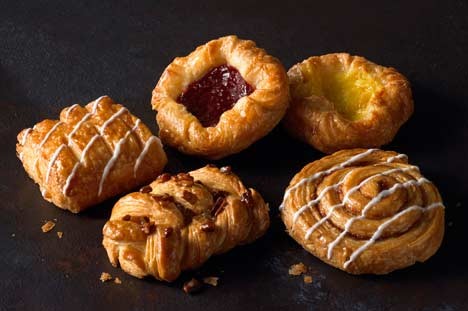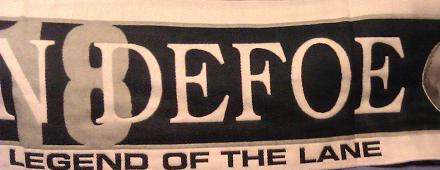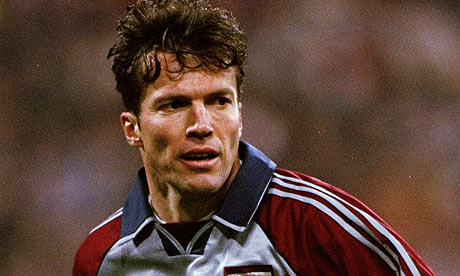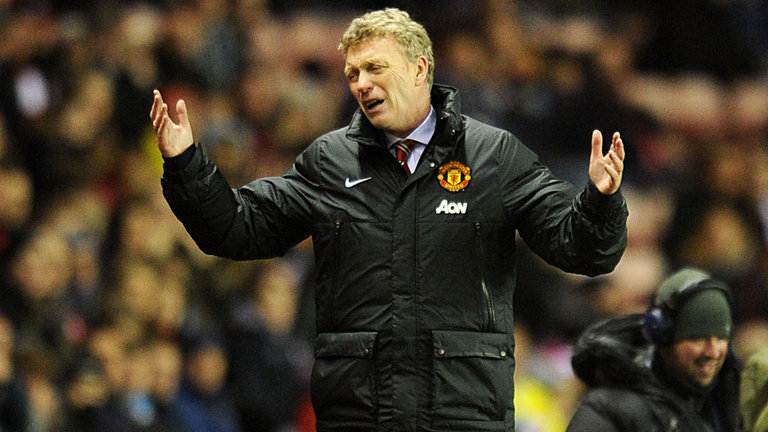The word “legend” is overused in sport these days ; anyone that has a couple of good years or wins a single piece of silverware can be described as a “legend” by the casuals in the pub, but as we count down the final days of Jermain Defoe as a Tottenham player, I wanted to write a retrospective in my own words of the career of a TRUE club legend, and a favourite of the fans that populate White Hart Lane on matchday. I wanted to title this blog with the words that we chant at Jermain at White Hart Lane, but in the current climate, you simply never know who you might offend, but I think “Legend of the Lane” will do quite nicely.
Beginnings
2003-04
Jermain Colin Defoe joined Spurs at the age of 21 in January 2004 having spent half a season in the Championship with relegated West Ham, with the disappointing Bobby Zamora going the other way. The initial £6 million wasn’t quite the bargain it would be these days, but it was nevertheless excellent value for such a prospect. Defoe scored on his debut for Tottenham, just as he had for Bournemouth, for West Ham and for the England Under-21 side, opening the scoring on 13 minutes in what eventually would end up a 4-3 victory at home to Portsmouth. He followed up with goals in the next two games, an unpopular strike at The Valley against Charlton in a 4-2 win and two goals in a topsy-turvy 4-4 at home to Leicester, including the late equalizer. JD also scored Spurs’ last goal of the season in a 2-0 win at Molineux, ending his season with a fine return of seven goals in fifteen games as a Lilywhite, even though the club had endured an indifferent campaign, spending much of the season under caretaker boss David Pleat, with the year being written off as “transitional” almost as soon as it began. Defoe’s career received another boost when he received his first England cap as a substitute in an end-of-season friendly against Sweden, although there was never serious consideration for him to sneak into the Euro 2004 squad ahead of Emile Heskey or Darius Vassell.
2004-05
2005 season started brightly for Defoe with three goals in Spurs’ first four games including their first of the season at home to Liverpool, but Defoe’s form, like Tottenham’s, was not to last. After only one defeat in the first eight games, a run of disastrous results including home defeats to Bolton and Charlton saw new manager Jacques Santini depart after only 12 games at the helm. Defoe scored in the first game under new boss Martin Jol, a 4-5 reverse at home to Arsenal, and a mouth later bagged his first hat-trick for Tottenham in a 5-1 demolition of Southampton.

JD scored in Jol’s first game in charge of Tottenham… as he would in his last game in charge, three years later
A resurgent Spurs under Jol took the fight for the final UEFA Cup place all the way to the final day of the season but ultimately fell short by a single win, and Defoe personally played in 44 of Spurs’ 48 games in all competitions, scoring 22 times, thus achieving exactly the much-touted “good return” ratio for a striker of one in two, despite competition from Robbie Keane, Freddi Kanoute and January loan arrival Mido. Internationally Defoe was handed a shock first start for England by Sven-Göran Eriksson in a vital qualifier in Poland on the 8th of September, eleven days after his third goal in four Premier League games, and he rewarded Sven for his gambit with the first goal in a 2-1 win. When Wayne Rooney returned to fitness Defoe found himself constantly on call as reserve striker for Rooney and Michael Owen, but could not add to that goal in Chorzów, and soon questions were also being asked about other in-form strikers such as Darren Bent and Andrew Johnson.
2005-06
In 05-06 despite starting the season well, a partnership with Gzregorz Rasiak failed to bare fruit (due to the latter never being Premier League quality), once Robbie Keane had come off the bench he never looked like returning to it, and with the Keane-Mido partnership seeming to click, Defoe found his starting chances limited and only managed 9 goals for the season.
He kept up his run of scoring against old teams with two at home to Charlton (whom he played for between the ages of 14 and 16) in the spring and a goal at Upton Park on the last day of the season that might have been important had Tottenham kept the score at 1-1 (they didn’t) and Wigan managed to do Spurs the ultimate favour at the Emirates (they couldn’t) as the battle for fourth went down to the wire. Perhaps unsurprisingly, JD was left behind as a mere standby for Sven’s World Cup squad, as the Swede relied instead on Peter Crouch, the half-fit Michael Owen, the unfit Wayne Rooney, and the 17 year old Theo Walcott who had yet to play a single minute of Premier League football for Arsenal.
Surplus To Requirements & Eventual Departure
2006-07
2007 season saw the arrival at Spurs of Dimitar Berbatov and a formidable Keane-Berbatov partnership emerged, leaving JD firmly down the pecking order, but he still had ample game time and chances to score 18 goals in a busy season that saw Tottenham reach the quarter-finals of the FA Cup and UEFA Cup (in which Defoe scored his first European goals against Steaua Bucharesti (2) and Sevilla) as well as the semi-finals of the League Cup. In October and not for the last time, JD courted controversy in a home game versus West Ham in which he appeared to bite Javier Mascherano, but he escaped action from the FA. On Boxing Day JD grabbed a brace at the Lane in a 2-1 win against Aston Villa, his second goal being his 50th for Spurs.
Defoe once again was the scourge of former teams in the league games he did play, scoring at home to Charlton in a 5-1 win, at Upton Park in a 4-3 win that we thought had condemned Alan Curbishley’s men to relegation, and again on Easter Monday at the Valley to actually put the nail in the coffin of Curbishley’s (and Defoe’s) old team Charlton. In all three games however Defoe was put in the shade by Berbatov who scored spectacular goals himself, and Defoe’s season ended with the frustration of a missed penalty at home to Man City – in a game in which Keane and Berbatov both scored. His international season started brightly as he started the first game for new England boss Steve McLaren – a home friendly against Greece – then netted twice in a 5-0 win against Andorra which saw the first example of the results his partnership with Peter Crouch could yield, the latter also bagging two. Defoe remained a regular player for McLaren but did not score again, having a goal stolen from him in the away game with Andorra as David Nugent booted Defoe’s goalbound shot in for himself literally as it reached the goal line.
2007-08
The summer of 2007 perhaps will have been when Jermain saw the writing on the wall, as despite having him in addition to the regular Keane & Berbatov partnership, director of football Damien Comolli decided to spend £16.5m on Darren Bent. Soon even the substitute appearances seemed to dry up for JD, although he reminded Martin Jol of what he could do with two brilliant goals from off the bench in a 6-1 drubbing of Anorthosis Famagusta in a UEFA Cup qualifying round match, although it wouldn’t have made any difference either way since Jol was shown the door the night of the home game with Getafe in said same competition. Ironically, Defoe would score the final Spurs goal under the watch of the manager that didn’t seem to want him any more, on that same sombre night at the Lane.
In November Defoe suffered the ignominy of missing a penalty at the ground that despises him most, Upton Park, which would have won Spurs the match. With Tottenham showing signs of recovery under Juande Ramos with Keane, Berbatov and Bent all contributing by the turn of the year, it seemed inevitable Defoe would seek a move away. He capped a run of three goals in consecutive festive period games with the equalizer – upon the occasion of a rare start – in a 2-1 defeat on New Year’s Day at Villa Park which turned out to be his final goal of the first half of his Spurs career, in a game I happened to attend. The next league game at home to Sunderland, Jermain not only started but was given the captain’s armband, in hindsight a nice farewell gesture. Typical of this period of frustration for Defoe, he did not score on his final appearance at White Hart Lane before being substituted, and his replacement Robbie Keane did. Defoe played his last game for Spurs as a late sub in an FA Cup tie at Old Trafford before being sold to Portsmouth to reunite with old West Ham gaffer Harry Redknapp, where Defoe – as usual – scored on his debut, before suffering the double disappointment of having to watch Spurs win a League Cup final that he had helped them reach, then sit and watch Portsmouth lift the FA Cup after a final he could not play in due to being cup-tied. His half season at Spurs involved 31 games of which 23 were from the bench, and 8 goals, and he added a further 8 in a mere 12 games for in-form Portsmouth, earning an England recall under Fabio Capello and capping his season’s recovery with two goals for his country against Trinidad & Tobago in an end-of-season friendly.
Return to White Hart Lane ; The Main Man Again
2008-09
JD had a promising start to 08-09 both internationally (with two goals for England in a World Cup qualifying thrashing of Kazakhstan) and domestically with regular goals for Portsmouth including a penalty against a struggling Spurs at Fratton Park which he took before deafening chants of “You’re Spurs, and you know you are” from the traveling army. In January he decided he wanted to leave the south coast and took the opportunity to reunite (again) with Harry Redknapp and come home to Spurs, who having sold both Keane and Berbatov in the summer were in dire need of regular goals. The deal mostly involved writing off money Pompey still owed Tottenham for himself, Younes Kaboul (who would also return to Spurs) and remarkably, Pedro Mendes, as well as waiving a sell-on fee. Defoe’s return debut for Spurs came, incredibly, at White Hart Lane against the club both he and his manager had left for Tottenham, Portsmouth. Defoe scored on his debut, as is his wont, in a 1-1 draw, robbed of the perfect return by David Nugent, of all men.
After 3 goals in 4 games Defoe suffered a toe injury that both ruled him out of Spurs’ second consecutive League Cup final and prompted the panic re-purchase of his old strike partner/rival, Robbie Keane. With 4 goals in 10 Spurs games, Jermain capped another eventful season with two more goals for England in a 6-0 rout of Andorra at Wembley.
2009-10
The year that followed proved to be both Defoe’s finest season for Tottenham, and Spurs’ best year with him on the books, mostly due to Defoe being reunited with Peter Crouch in a partnership that averaged a goal a game in their time together for Portsmouth and Spurs combined. Unhindered by distraction by the inferior UEFA Cup for the first season in four, Tottenham started the league campaign in robust form and never looked back, with Defoe scoring an exquisite hat trick in a 5-1 win at Hull just seven days after netting twice for his country away to Holland. In October Defoe scored against an old club again, as is his wont, with what turned out to be the winning goal away to Portsmouth, but was then sent off for an apparent stamp on Aaron Mokoena, causing him a suspension that meant he missed the North London derby, which Tottenham lost 3-0. JD’s next goals for Spurs were his most historic, as in the home game with Wigan he first scored the second fastest hat trick in Premier League history ( on 51, 54, and 58 minutes) before adding two more (69 and 87) to follow Alan Shearer and Andy Cole into the record books as a scorer of five goals in a game in the Premier League (since also achieved by Dimitar Berbatov for Man United). As I’m sure you may remember, Tottenham won the game 9-1.
In February Defoe grabbed his third hat trick of the season at Elland Road in the FA Cup and went on to finish with 18 league goals, 24 in all competitions, and with Tottenham finishing in the Champions League place they had been hovering in and around all season, the only negative being a disappointing FA Cup semi-final defeat to Defoe’s old team, Portsmouth. JD capped his greatest year in football by scoring a goal for England in the World Cup in a 1-0 win against Slovenia, a personal triumph in an otherwise bitterly disappointing English campaign.
2010-11
The 10-11 season was very trying for Defoe who missed three months with an ankle injury sustained in England’s Euro 2012 qualifier with Bulgaria – a game in which he scored a hat trick. He marked his return by setting up the first goal in a dramatic 3-2 comeback win in the North London derby at the Emirates, and seventeen days later scored his only goals in the Champions League proper with two in a 3-3 draw away to FC Twente.
Injuries blighted Jermain again, and it was March before he grabbed his first Premier League goals with two in another 3-3 draw, this time at Molineux. His next goal, at home to West Brom, was his 100th in the Premier League. Injury caused Jermain to miss the historic games with the two Milan giants, but he did feature in both legs of the Real Madrid tie, albeit as a sub. First team chances were restricted as Harry Redknapp favoured one striker from JD, Crouch or Roman Pavlyuchenko in front of new signing Rafael van der Vaart and the one was usually Crouch, which suited the Dutchman – he ended up Spurs’ top scorer that season – but the team as a whole struggled to score enough goals and finished 5th, Defoe himself managing 9 goals from 30 appearances, mostly from the bench. His copybook was also blotted with another red card, this time at Villa Park on Boxing Day, in a game Spurs won 2-1 thanks to two goals from van der Vaart.
Always The Bridesmaid
2011-12
The exit of Peter Crouch and arrival of Emmanuel Adebayor at White Hart Lane for 11-12 season provided another challenge for Defoe as again Redknapp usually favoured a single striker in front of Aaron Lennon, van der Vaart and Gareth Bale, anchored by the ever-present Luka Modric and Scott Parker.
Spurs spent much of the winter and spring in 3rd place but a reliance on the same men in key positions caused fatigue and the team collapsed between March and May and finished 4th, denied Champions League football by virtue of Chelsea winning the competition and finishing 6th in the league. In and out of the side again, Defoe netted 17 times in 38 games, around the “one in two” mark yet again and only one shy of Adebayor’s total with the latter finishing Tottenham’s top scorer. A testing season professionally ended in personal heartbreak with Defoe’s father dying while he was on England duty just prior to Euro 2012, a tournament in which he made Roy Hodgson’s squad, but did not feature.
2012-13
In the wake of failure to return to the Champions League, Tottenham entered their customary period of transition, with Redknapp sacked and the sales of Modric and van der Vaart. JD initially found himself the primary striker for new manager Andre Villas-Boas in a modern 4-2-3-1 and he started the season well, including braces away to Reading, at home to West Ham and away to Fulham. On Boxing Day he marked his 400th career football league appearance by scoring the opening goal in a 4-0 win for Spurs in their customary festive trip to Villa Park in a game I was privileged to attend. Injuries and the side’s poor form blighted the second half of Defoe’s season as Spurs entered their now familiar post-New Year lull, but he still contributed by turning Vincent Kompany inside out to smash home the second goal in an impressive 3-1 win at home to league champions Man City to effectively end their hopes of retaining the title.
Despite achieving their highest-ever Premier League points total, Spurs came 5th and missed out on the Champions League again. In and out of the team again post-injury, JD managed 43 appearances in another busy season on multiple fronts for Tottenham, but only managed 15 goals, 11 of which came in the league. He started and finished the season well for England, scoring goals in qualifiers in September and March – but they were against Moldova and San Marino. In the big games, JD failed to register, or was dropped for Danny Welbeck.
Oh, Canada….
2013-14
After Gareth Bale’s departure and the insane spending of last summer at White Hart Lane, Jermain yet again found himself second choice, this time to Roberto Soldado. Despite the latter failing to find the net from open play in the league, JD found his chances restricted to substitute appearances but maintained dynamite form in the Europa League, in which which he scored his 23rd European goal for Tottenham against Sheriff Tiraspol, passing Martin Chivers’ record and sealing his place as a club legend.
An action-packed all-round display in the League Cup at Villa Park (in a game I was lucky enough to see in person), capped with a milestone two goals with made him Tottenham’s fifth leading goalscorer of all time, forced AVB to consider giving Jermain a start in the league. Unfortunately this start came in the home game with West Ham, where the worst Spurs performance I’ve seen in twenty years resulted in Defoe receiving very few touches of the ball, and the team losing 3-0. Subsequent starts away to Fulham and Sunderland at least yielded Tottenham wins, but Defoe did not score, and he was back on the bench in the next game at home to Liverpool – a 5-0 hiding which cost Villas-Boas his job. JD started up front with the forgotten man Emmanuel Adebayor in the West Ham League Cup game, and set up the Togolese for his goal, but by the time Tim Sherwood was given the manager’s position permanently, JD had already made up his mind to move on and given a verbal agreement to FC Toronto. Roy Hodgson says the move will not affect his chances of making the World Cup squad ; of that, I have serious doubts.
Less than 24 hours after the announcement, I was on my way into White Hart Lane for the Crystal Palace match. With on sale dates being what they are, I knew that if Defoe got on the pitch, this was going to be my last chance to see him play for Spurs. The Park Lane lower chanted his name well before his introduction on 58 minutes, and I felt like crying when he did come on. As fate would have it, he grabbed his first, and to date only goal of the Premier League campaign on 72 minutes to finish the game at 2-0, and I leaped for joy with tears in my eyes. On my way out of the ground I felt compelled to buy the scarf from which the image atop this article comes.
Yesterday JD was given the courtesy of the last five minutes against Everton and a lap of the Lane on the shoulders of Adebayor and Jan Vertonghen, but I’ll always feel I attended his real farewell – his final goal at White Hart Lane. That’s how he’d want the Spurs fans to remember him, rippling the net after some neat feet. Spurs have trips to Newcastle, Dnipro and Norwich before Jermain leaves, but he’s seen the last of his days at White Hart Lane after spending the best part of a decade with us, growing from a boy of 21 to a man of 31, sitting on 79 from 186 in his second spell with us, 143 from 363 over all, and with ten goals in all competitions, currently the club’s joint (with Soldado) top scorer for 13-14. At 0-0 yesterday even up to the point that Adebayor scored, the crowds were chanting for Jermain Defoe. He was always good for a goal, and as Palace discovered, he still is.
Thus the Spurs story is coming to an end for a man whom only Cliff Jones, Martin Chivers, Bobby Smith and the one and only Jimmy Greaves have scored more than for Tottenham, a man whose best friend in football is Ledley King, a man who once said his favourite journey was driving to White Hart Lane on matchday, and the club’s leading European goalscorer of all time. The Premier League’s record scoring substitute of all time probably sums JD up. The crowd favourite, even if in the eyes of the managers, he was nearly always the bridesmaid. The nearly man. Like the scarf says ; Jermain Defoe – England Lion, and Legend of the Lane.
Jermain Defoe….. “You’re Spurs… and you know you are…..“























